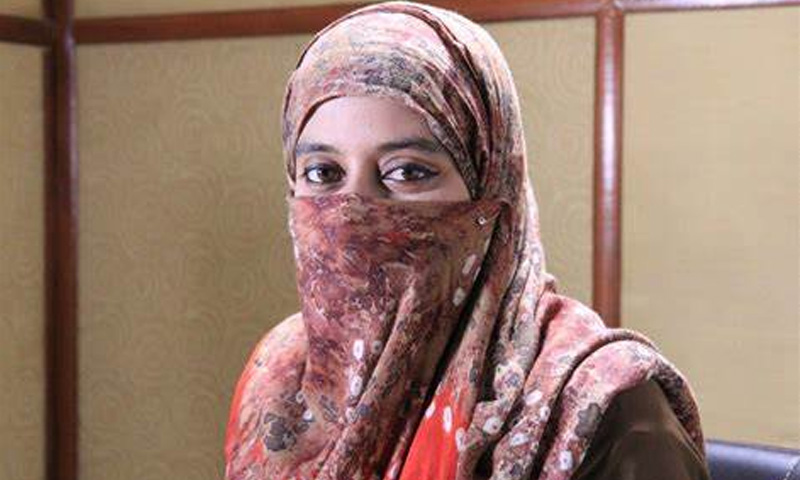- Web Desk
- 8 Hours ago
Crumbling Karachi — a metropolis on the brink
Home to about 18 million people, Karachi is a cramped, multi-ethnic, multi-linguistic, multi-cultural metropolis, making it one of the most diverse cities in the world. Its residents, often working multiple jobs to achieve a decent, productive, and secure life, face a harsh and painful reality: the city has failed them despite their efforts. The majority live substandard lives in fear, struggling with inadequate infrastructure, basic services, and a high crime rate.
“Karachi is a melting pot on the boil, ready to spill over anytime. High inflation and eroding living standards, coupled with a high crime rate and increasing vulnerability to disasters, require urgent attention. The city is known not only for its remarkable resilience but also for triggering cycles of unrest with far-reaching consequences,” warned a former political activist settled abroad.
Positive sentiments, boosted by the $7 billion IMF deal, have tossed the capital market index in Pakistan to record highs and provided some comfort to Prime Minister Shahbaz Sharif’s government. However, this is not sufficient. Karachi, the dynamo powering Pakistan’s economic engine, urgently needs careful maintenance to generate the energy required to propel the country forward.
Despite expanding faster than the national average, accounting for one-fourth of Pakistan’s GDP, and contributing more to government finances than the rest of the country combined, Karachi continues to struggle with basic amenities. Issues with water, sanitation, drainage, transport, safety, gas, electricity, parks, schools, and hospitals paint a grim picture. “Karachi appears to be crumbling under its own weight,” remarked a former bureaucrat.
Appeasing key donors with creative public accounting exercises in budget-making is challenging, and securing the credit deal likely required significant efforts from the government’s economic team. This achievement could open more avenues of raising money from global financial markets and multilateral or bilateral development partners, giving Pakistan some time to put its affairs in order. However, an economic turnaround is unimaginable without fresh investment and significant productivity improvements nationwide, especially in Karachi, the country’s manufacturing and finance capital.
“Karachi must be uplifted with targeted public investment in its infrastructure and workforce skills, providing decent living conditions for its residents. This will make Karachi attractive to investors once again. It is unrealistic to expect investors to trust Pakistan with their capital if they don’t find the country safe and hospitable for themselves, their companies, and their workforce,” commented a top businessman.
Iftikhar Sheikh, President of the Karachi Chamber of Commerce and Industry (KCCI), was unwell and not readily available to share his thoughts. However, Dr. Usama Ehsan Khan, head researcher at the Policy Research and Advisory Council (PRAC) of KCCI, highlighted some interesting aspects in response to queries. “The discrepancies between budgeted and actual allocations for Karachi’s development are alarming. Despite a budgeted Annual Development Program (ADP) allocation of 34.4 percent for Karachi in 2023-24, actual receipts were only 9.8 percent. This allocation has now been reduced to 21.5 percent for 2024-25. Additionally, the latest Sindh Budget includes no new mega projects for Karachi and imposes significant cuts on funding for ongoing ones. Allocations for Karachi’s mega schemes have plummeted to just 0.28 percent of the province’s overall ADP, down from 1.28 percent the previous year. This neglect is perplexing, especially given the World Bank’s projection that Karachi’s infrastructure needs an investment of approximately $10 billion. The resources allocated are grossly inadequate to address the city’s escalating infrastructure crisis and deteriorating living conditions.
“Worsening the situation further, the Infrastructure Development Cess, collected at the port like the Worker Welfare and Workers Education Cess, is not being utilized for its intended purpose,” he stated.
Earlier, discussing the issue, Younus Dagha, former minister and Chairman of PRAC, dissected the budget. He remarked, “In the 2024-25 budget, Karachi is expected to contribute around 60 percent (Rs7.78 trillion) of the targeted Rs12.97 trillion in tax revenues. Sindh will receive Rs1.98 trillion (75 percent of its budget) in federal transfers and grants, plus another 13 percent (Rs350 billion) from the Sales Tax on Services, mostly collected in Karachi. The city also generates significant revenue from the infrastructure development cess (Rs170 billion) and other taxes. Despite this, only 5 percent (Rs160 billion) of Sindh’s budget is allocated to local bodies, with the Karachi Metropolitan Corporation (KMC) receiving just Rs34 billion (1.1 percent). In contrast, local government transfers in Khyber Pakhtunkhwa and Punjab are 17.7 percent and 15 percent, respectively.”
Both federal and provincial governments were approached for input, but responses did not meet the deadline. Karachi Mayor Murtaza Wahab hinted at multiple power centres operating in the city, complicating an already complex situation, though he seemed reluctant to elaborate further.
Abdul Aleem, Secretary General of the Overseas Investors Chamber of Commerce and Industry (OICCI), criticized the neglect of Karachi. He highlighted how successive governments have overlooked the city’s economic needs. “Karachi significantly lags behind in road infrastructure and civic amenities compared to peer cities across the world and even Lahore and Islamabad. Business leaders perceive authorities as lacking interest in improving the city’s infrastructure, viewing it primarily as a revenue source. The poor state of Karachi’s infrastructure becomes evident as soon as one lands at Karachi Airport. It hampers both local and foreign investment.” Aleem questions whether there is any genuine concern for improving Karachi’s infrastructure.
An economist saw politics at the root of Karachi’s problems. “Since 1988, the city’s development has been held hostage to political maneuvering. The troubled relationship between PPP and MQM has exacerbated law and order issues. Neither the PML-N nor the PTI has taken ownership of Karachi. How can investment thrive in such a tumultuous environment?”






